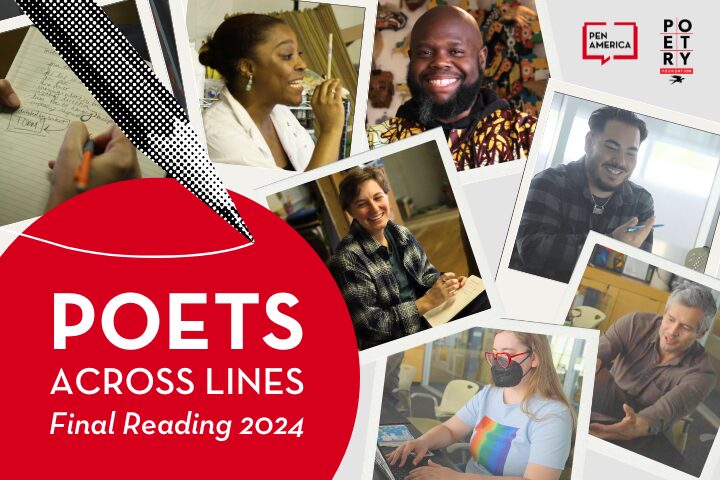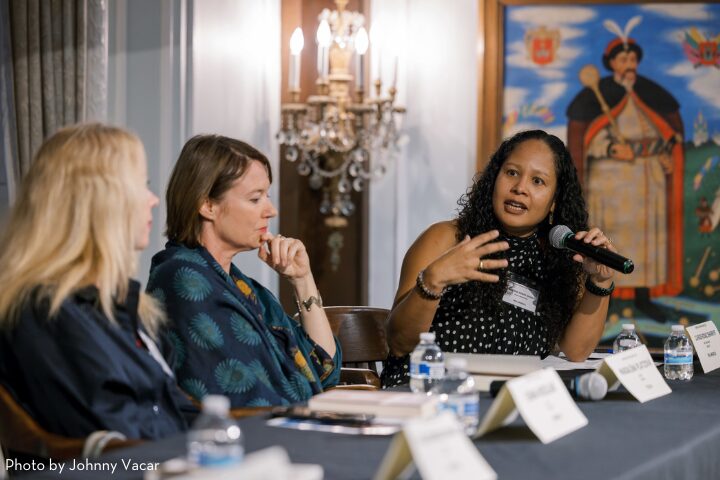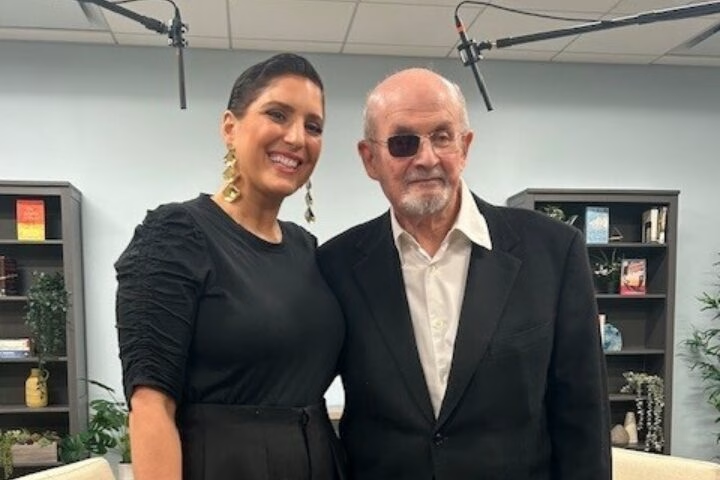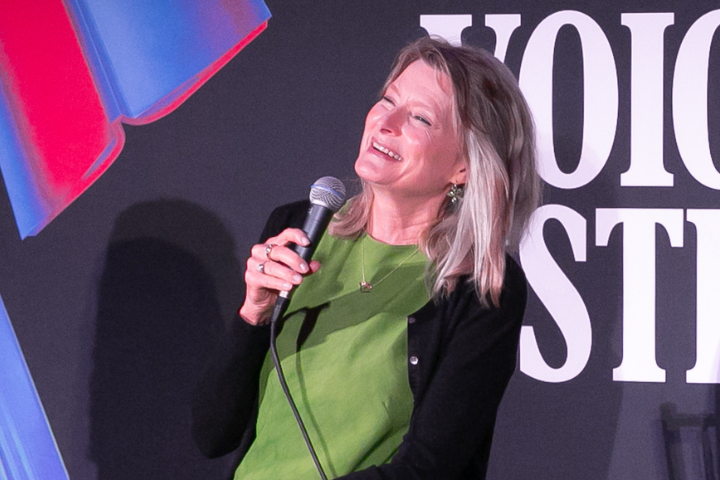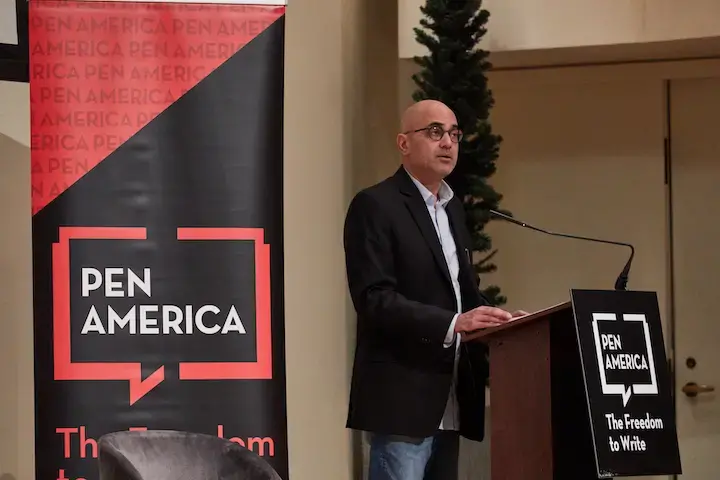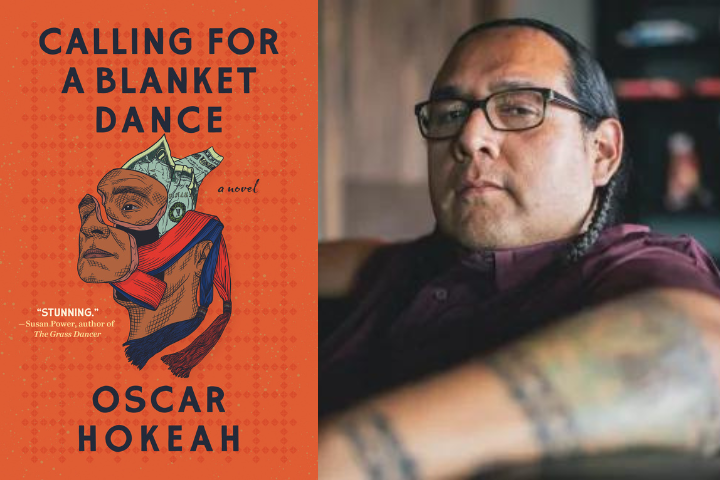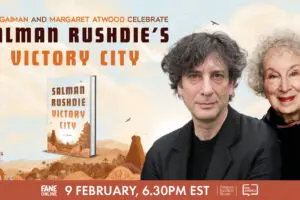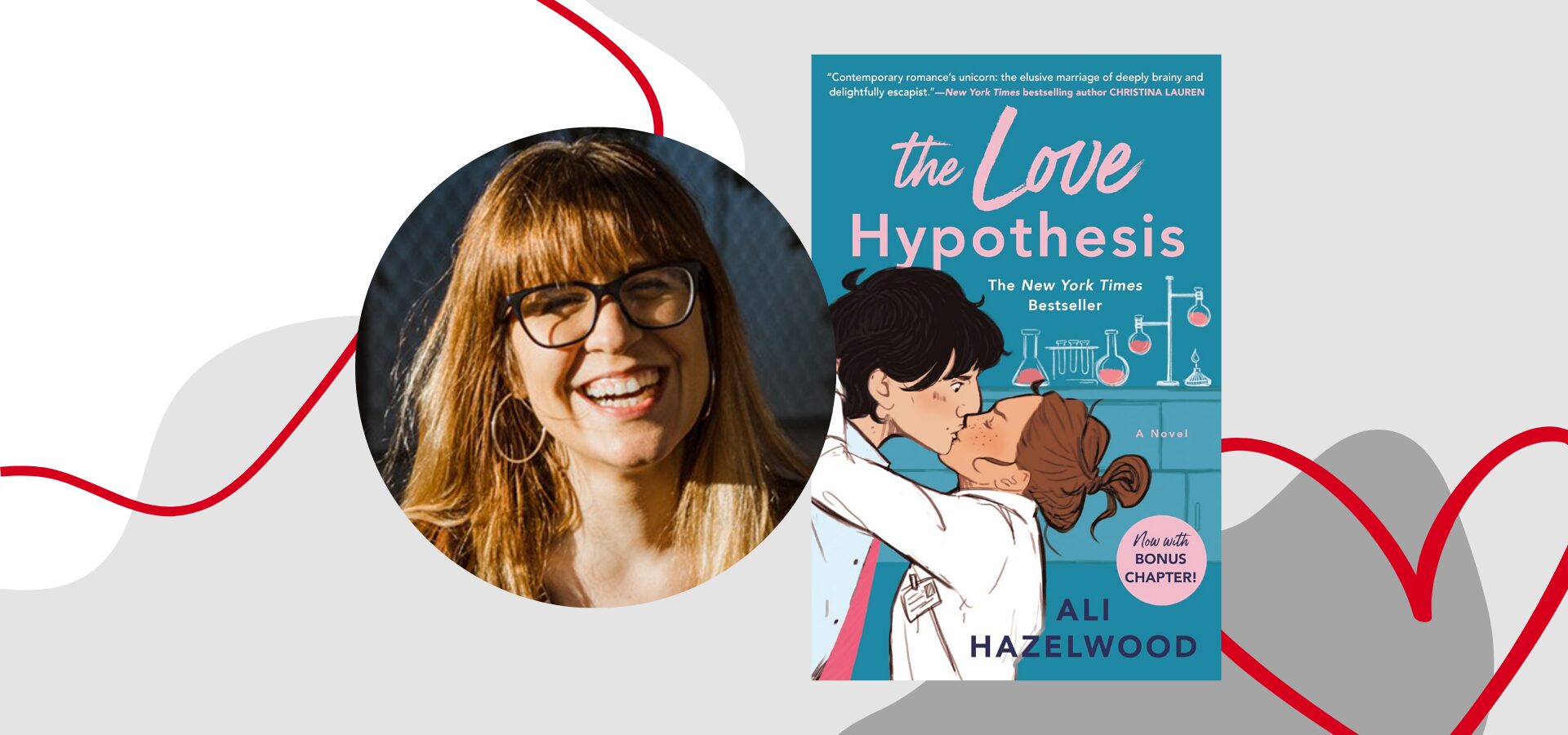
In the New York Times bestselling author Ali Hazelwood’s books, the tropes are tried-and-true favorites: enemies to lovers, secret affairs, childhood friends. But the female protagonists hardly fall into such familiar traits–they are NASA engineers, divers, biotechnicians, and theoretical physicists, to name just a few. Known for her ‘STEMinist’ novels, Hazelwood’s writing brings science to meet the sexy.
But not all students in public schools across America have the access to inspiring romances. PEN America’s recent reports have found that romances are increasingly targeted for censorship for carrying sexual content. Popular romance fiction can be a great resource for adolescents and teenagers to learn about love and desire, and spark productive, and often pivotal, conversations about boundaries and consent. This Valentine’s Day, to celebrate love, and the love for writing and reading about love, we are launching an interview series, in collaboration with Authors Against Book Bans, with writers who have long celebrated the genre.
In the first installment, we talked to Hazelwood, author of The Love Hypothesis, Love, Theoretically, and most recently, Deep End, about why romance writing is important and what she has learned from her readers.
What was the first romance novel you ever read? What is the last romance novel you read?
The first was a Harlequin whose title I sadly don’t remember, but it absolutely blew my mind. The last one was A Tropical Rebel Gets The Duke by Adriana Herrera, which is a modern masterpiece!
Why do you write romance novels? Who do you write them for?
This is such a hard question! I write for myself, because I enjoy telling myself stories. However, I share my writing (with whoever would like to read it, for any reason) because I think that exchanging stories is my favorite way to pass the time between birth and death!
Why do you think romance novels matter?
I would argue that they matter because people are reading them. But also, romance novels are not a monolith, and neither are readers. Individuals seek books for multiple reasons. So the reason a piece of writing is important, I think, will change based on who is doing the reading, and that’s true not just of romance but of every single genre.
Why is it important for books to tackle sex and sexual desire?
Because it’s part of the human experience, and humans are constantly trying to make sense of the world around them. Reading can give us knowledge and vocabularies that help us navigate all sorts of experiences and situations.
Why do you think the romance genre has seen such a resurgence in pop culture?
Because love, including romantic love, is a universal experience that a lot of people want to read about. Sex, too!
What value does romance bring to literature writ large?
I think we should turn this question around: Why should romance, a genre that clearly resonates with millions of readers, have to explicitly fight for its right to exist? I’d love for everyone who wonders whether romance has value to ask themselves: What biases drive this question? Why, out of many types of genre fiction, is it romance that constantly has to justify its existence? What does this say about the way they view the people who read and write romance? Do they see any pattern with the way they view romance now, in 2025, and historical events that took place before any of us were even born?
What is the most valuable lesson you have learned from your readers?
That everyone comes to a piece of writing with different backgrounds, expectations and goals, and everyone will make that piece of writing their own. Once a text is being read, the author is dead.
What has been the most rewarding part of being a romance writer?
The sense of community with fellow readers and fellow authors.
Ali Hazelwood is the #1 New York Times bestselling author of Love, Theoretically and The Love Hypothesis, as well as a writer of peer-reviewed articles about brain science, in which no one makes out and the ever after is not always happy. Originally from Italy, she lived in Germany and Japan before moving to the U.S. to pursue a PhD in neuroscience. When Ali is not at work, she can be found running, eating cake pops, or watching sci-fi movies with her three feline overlords (and her slightly-less-feline husband).

